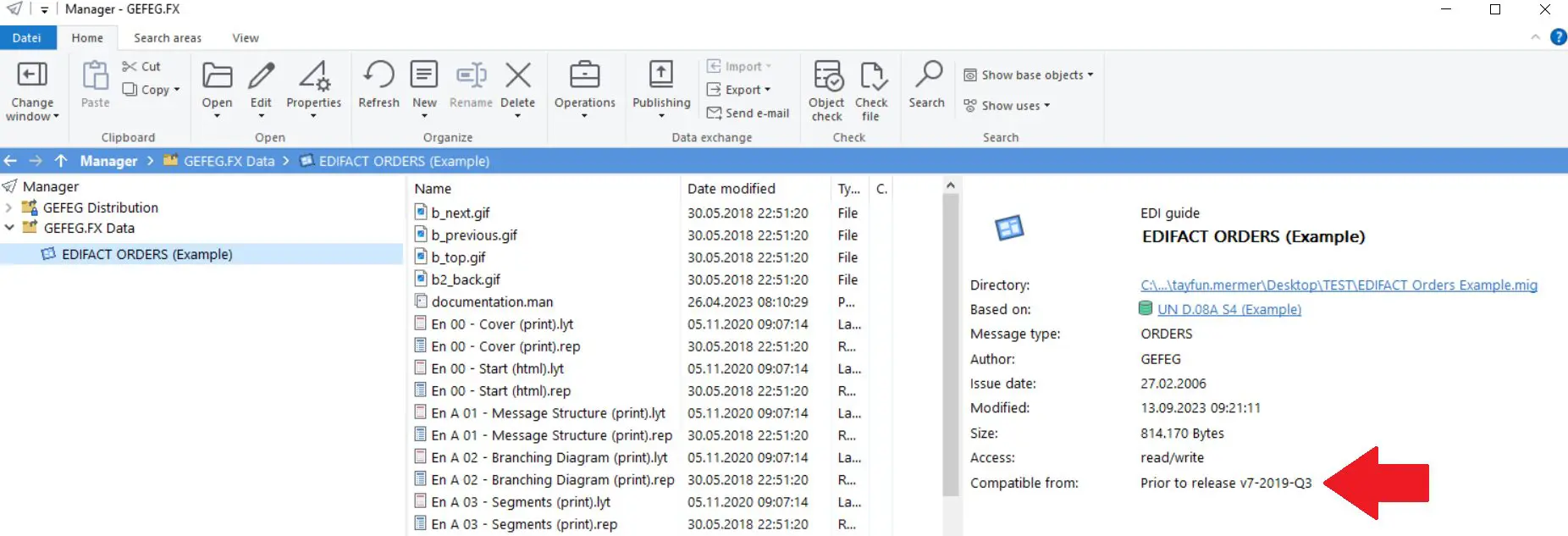Best Practices for Modern API Design with GEFEG.FX
In this article, which focuses on GEFEG.FX functions, we concentrate on best practices for developing standards-compliant interfaces with API technology – a key building block for sustainable and maintainable IT systems.
This article supplements the EDIWheel Workorder Project Report with information on further technical features of the API functions in GEFEG.FX.
Complex Requirements in Interface Design
When developing interfaces for data exchange with external partners, companies encounter typical challenges: A lack of standards-compliant documentation and missing validation of data streams often lead to errors and security risks. At the same time, uncoordinated approaches complicate future scalability and maintenance. In addition, inconsistent structures and a lack of versioning strategies cause technical debts that slow down further development in the long term.
The key solution: Integrated design of interfaces and data formats
GEFEG.FX provides an integrated approach by combining various editors (functional areas). In addition to the OpenAPI editor, the software offers other editors. Each editor is customised for the development of specific technical data formats based on established industry standards and user-defined data structures. These data structures can be integrated into the API Editor, enabling validation of incoming and outgoing data using schema files.
By merging interface design with data exchange format design, GEFEG.FX acts as a comprehensive tool for API development, from the initial design stages to documentation. This integrated approach supports consistent implementation and, through the use of data format schema files, enables systematic quality assurance of exchanged data.
Practical Features for Efficient API Development
The API Editor in GEFEG.FX supports domain experts with numerous practical functionalities. At the same time, full compliance with the OpenAPI 3 format ensures that all APIs created fulfil the standard requirements. The flexible export to YAML or the OpenAPI 3 format enables seamless reuse in other applications and systems. In addition, existing data structures from JSON schema or XML schema can be imported directly and used as the basis for new APIs, thus eliminating the need to capture redundant data structures.
The regularly updated international code lists, which can be integrated into the APIs with just a few clicks, provide a further efficiency gain. Customisation options for API responses and the integration of example values in API descriptions simplify implementation for external partners. These functions not only simplify API development, but also promote smooth collaboration with business partners.
With the OpenAPI Editor in GEFEG.FX, developers and domain experts have a well-designed tool that supports the entire lifecycle of API interfaces while ensuring data quality. Agood example of this is the EDIWheel Workorder Project, which was developed with the API editor from GEFEG.FX.. Die Kombination aus Benutzerfreundlichkeit und technischer Tiefe macht den OpenAPI Editor zur idealen Lösung für moderne Integrationsanforderungen.










